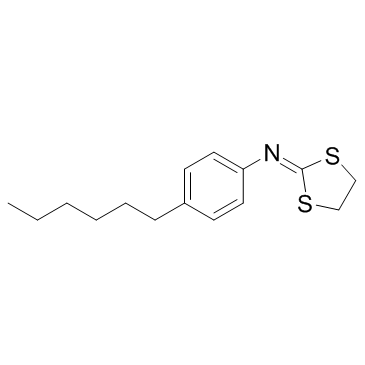| In Vivo |
Oral administration of MDL 19301 inhibits rat paw edema induced by carrageenan (ED30=4.8 mg/kg) or an Arthus reaction (ED30=8.2 mg/kg p.o.). The oral dose which induces gastric ulceration in 50% of fasted rats is greater than 1,000 mg/kg, demonstrating a more favorable therapeutic ratio than conventional nonsteroidal anti‐inflammatory agents. The anti-inflammatory activity of MDL 19301, but not that of MDL 16,861, is attenuated by co-administration of an inhibitor of drug metabolite (SKF525A). This suggests that MDL 19301 is a prodrug of MDL 16,861 and this phenomenon would explain its lack of ulcerogenicity. Additional anti-inflammatory properties of MDL 19301 include inhibition of carrageenan pleurisy, adjuvant arthritis, and HOAc-induced writhing. Other pharmacological data indicate that MDL 19301 administration results in inhibition of prostaglandin synthesis; inhibition of arachidonic acid-induced, but not prostaglandin-E2-induced, diarrhea in mice; and inhibition of ex vivo arachidonic-acid-induced, but not ADP-induced, rat platelet aggregation. MDL 19301 and MDL 16,861 are unexpectedly weak antipyretic agents in rats[1].
|
